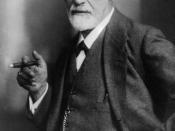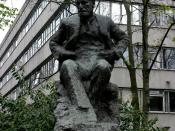Introduction
Juvenile delinquency has escalated into a complex problem that has everyone baffled on how to correct. Throughout the course of this class, we have learned about the five major development theories and various experts give us many views as to how these theories relate to the causes of juvenile delinquency; including an individual's economic background, genetic make-up, family structure and parenting styles, peer groups, exposure to violence, and lack of positive activities and role models. This paper will look at each of these causes and how we, as parents and role models, should approach these situations, to help our youth strive to become healthy, happy, law-abiding citizens.
What is delinquency?
What is delinquency? According to Wikipedia (2006), delinquency is "either violent or non-violent crime committed by persons who are (usually) under the adult age" (ö 2). In the United States, a child becomes of adult age when the individual reaches the age of 18.
There is much controversy on the dilemma of whether a child should be held responsible for their actions. In many cases, juveniles are not punished to the fullest extent because they are considered immature and not fully aware of the consequences following their actions; an example is taken from the murder trial of 13-year-old Ashley Howes. Howes is accused of violently shaking a child, whom she was babysitting and causing the 19-month-old girl's death. During the trial, Howes was released under conditions set forth by the courts and will be tried as a juvenile, which only holds a maximum detention of eight years if convicted, compared to 10 to 17 years if tried as an adult. This is a weakness we portray to our youth, and in my opinion, a mistake on the part of society, which brings us to the first perspective, the...


